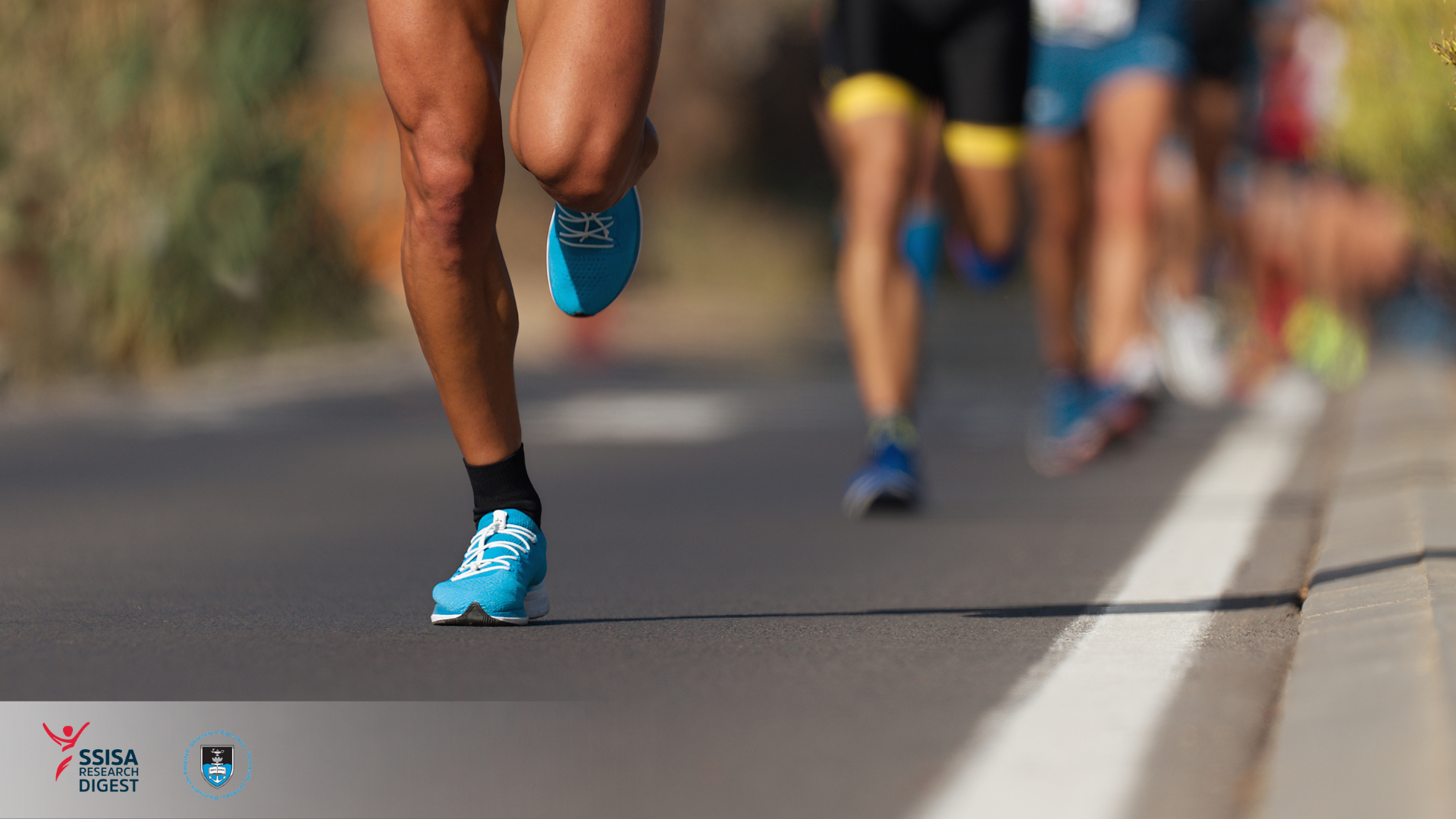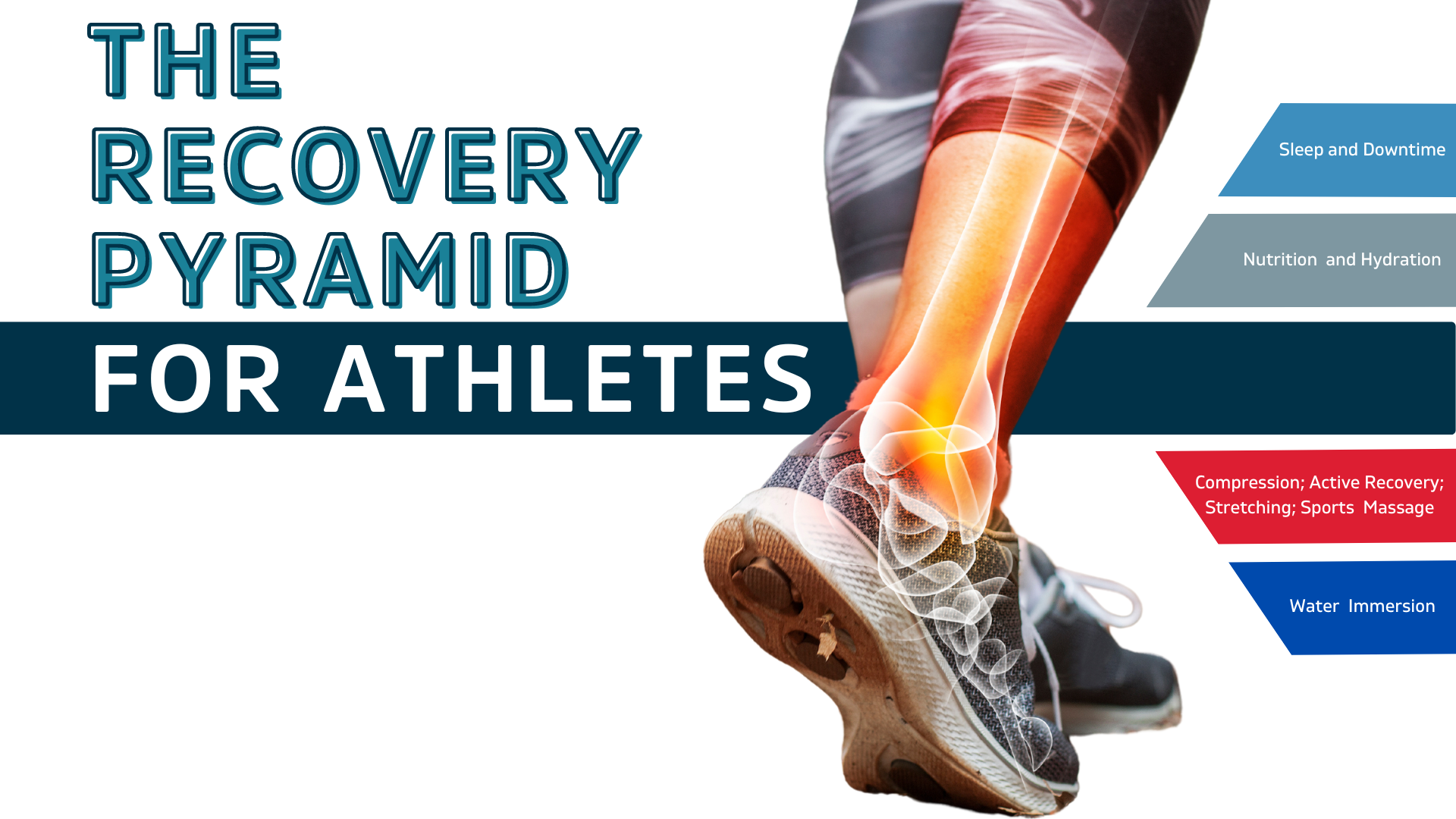Marathon Recovery
Congratulations! You have completed your Half, Full or Ultra Marathon, and now your body is in need of some much needed TLC.
How do I safely recover from a Marathon?
Regardless of athlete’s performance level, running a marathon places a high strain on body homeostasis over the course of several hours to days following the race. Exercise-induced muscle damage (also known as (EIMD) includes symptoms such as soreness, swelling, reduced range of motion (ROM) and reduced neuromuscular function. These symptoms often lead to limiting factors in an athlete's return to regular training, and recovery strategies are important for both highly-trained athletes and recreational runners.

Recovering from a long distance runs have been explored in research covering various interventions and strategies for a number of years. Although each runner’s recovery phase is different, the body may take up to 4 weeks to recovery from a marathon fully (1)
Researchers have reported on the following:
💤 Getting adequate rest
🧦 Wearing compression garments
🍼 Drinking milk
🔥 Sauna bathing
❄️ Cryotherapy or Cold Water Immersion
🏃🏼 Elliptical workouts
🧠 Reducing psychological stress
... And MORE
First and foremost, don’t rush back into training. Most coaches recommend taking 3-7 days off from running after a marathon event to allow the body to recover before adding more stress through training. Taking the first week off is common running practice. While in a recovery phase, it is important to listen to your body and assess how you are feeling.
With all the information available, it can be confusing when thinking about the best recovery techniques to make use of, often leading to information overload. So how do we apply the widely available information on recovery strategies?
Best practices tell us the following:
The next day after the race
- Avoid contact with people who have colds and infections post-marathon. This is crucial to prevent illness and support recovery. Research has shown that the immune system can be compromised after intense exercise, such as running a marathon, making the runner more susceptible to infections such as upper respiratory tract infections (URTI), sore throats, and flu-like symptoms due to temporary immunodepression may interfere with training and recovery (2).
- After the marathon, the athlete must replenish the muscles and their glycogen stores because of muscular damage and the depletion of glycogen levels during the marathon as a result of extreme energy needs. It is recommended that 1.2grams of carbohydrates per kilogram of body weight is the ideal amount of carbohydrates to consume after an endurance event (3). Carbohydrate ingestion has been associated with attenuated hormone and immune system responses to intensive, prolonged running, highlighting its importance in post-endurance event recovery (4). Regarding protein supplementation, this is also recommended for post-marathon recovery. It is believed that positive muscle protein balance is required to promote the repair of muscle damage and skeletal muscle recovery following heavy exercise (5).
- It is known that road running has a particularly negative impact on the ankles, knees and hips (6). It is advised to reduce running intensity and adopt elliptical training, swimming, or cycling as a preferable approach for athletes experiencing muscular tightness, soreness and stiffness in the ankle, knee and hip joints post-marathon. Research by Martínez and colleagues (2021) conducted a study to investigate muscular recovery through active recovery (running vs elliptical training) or passive recovery post-marathon. No significant differences were found 48hours post-marathon onwards at for running or elliptical training moderate intensity (7), however, it is safer to opt for elliptical is a to avoid further strain to the ankle, knee and hip joints in aid of muscular recovery.
- Compression socks or tights worn 1-day post marathon can play a significant role in muscular recovery and muscular function. Research shows that wearing below-knee compression garments for 48 hours post-marathon can improve functional recovery (8). The use of compression garments aims to aid the skeletal-muscle pump, increase deep venous velocity, decrease blood pooling in calf veins, and alleviate delayed onset of muscle soreness, all of which are crucial for post-marathon recovery (9). Additionally, compression garments can enhance sensory feedback to improve balance reactions and reflex control of walking, indicating their potential benefits beyond just muscle recovery (10).
2 days later
- Avoid running just yet… and continue with low impact exercise. Rather get in a gentle swim as a means of active recovery as opposed to just couch surfing. A study by Lum and Peeling (2010) advocate for the hydrostatic properties of water and its influence on inflammation, and that a swimming-based recovery session would be the most practical and beneficial way to promote muscular recovery (11).
- Evidence suggests that the benefits of massage from intense exercise is effective. A 30-60min massage by hand conducted by a therapeutic massage therapist (TMT) has been found to be one of the most effective means to muscular recovery amongst elite endurance athletes, for a frequency of 1-2 times a week. This technique for recovery is popular amongst soccer teams, track and field athletes, rugby players and many other sports (12).
3-4 days later
Heat > Ice
Ice baths have become increasingly more popular as a means to promote muscular recovery. If not done immediately after a race, this should be avoided. During the week post-marathon, rather opt for an approach that promotes heat, such as a sauna bath or hot bath. Research indicates that sauna bathing can have positive effects on cardiovascular function, heat acclimation, and exercise capacity in athletes. Through heat acclimation, this aids thermotolerance and exercise performance (13). Additionally, a sauna session may aid in the reduction of blood pressure and shows improvements in heart rate, which is beneficial for cardiovascular health (14). Through heat, blood flow to the muscles are improved by dilating blood vessels, and this may assist with any acute pain or discomfort post-marathon, thereby increasing blood circulation and promoting recovery.
5-6 days later
While you may have performance goals to achieve, given your results from this marathon, it’s important to prioritize recovery from this event first. In the 5-6 day mark post-marathon, try a “test run” to get the joints and muscles moving again and use this time to observe for any niggles in the joints and muscles.
- Many running coaches, clinicians and experts say that if you’re feeling up for a run, doing a light jog by the end of the first week post-marathon may be good for experienced runners. But if you are new to the sport, a run/walk combination could be a good compromise. It is said that your test run should be low-intensity, at an easy/light pace, involving a slow warm up with dynamic stretches. Remember that you are still in a recovery phase and that hydration and fuel play a big role as glycogen stores are still replenishing.
- Sudden sedentary behaviour should be minimized because the body may experience shock from rigorous training regimens and running a marathon, to sudden couch surfing. Therefore, doing active rest exercises or light runs will promote recovery from the marathon you’ve just finished. Post-marathon recovery training is essential for runner’s health.
- Additionally, it is recommended to gradually reintroduce strength training back into your training regimen as it would be safe to do so at this stage of the recovery phase (15).
So when can I return to running?
Returning to running post-marathon is considered safe and recommended, with a distinct focus on listening to your body and following a recovery plan, according to research. Keeping up with running, post-marathon, benefits neuromuscular performance, and assists with muscular recovery - BUT at light-to-moderate intensity levels for 40min two days after completing a marathon does not seem to have a negative impact on muscle damage recovery, which is a prime purpose following a long distance run.
Lastly, it is recommended that for 1-2 weeks post-marathon, that we get our "runners high" through low impact exercise modalities or running at lower intensity. By the end of this recovery period, it is assumed that you should be feeling mentally and physically refreshed after all of your recovery activities. Remember – if you need assistance with your recovery plan, speak to your nearest Biokineticist or Physiotherapist at the Sports Science Institute of South Africa, to help you re-introduce running and strength training following your stellar achievement during the marathon you’ve just completed!
References:
- Tsai K, Hsu T ger, Hsu K ming, Cheng H, Liu T yun, Hsu C fu, et al. Oxidative DNA damage in human peripheral leukocytes induced by massive aerobic exercise. Free Radic Biol Med. 2001;31(11):1465–72.
- Nieman DC, Henson DA, Austin MD, Sha W. Upper respiratory tract infection is reduced in physically fit and active adults. Br J Sports Med. 2011 Sep;45(12):987–92.
- Mahon EA, Davies IG, Stott TA, Hackett AF. Meeting carbohydrate recommendations during a mountain marathon. Proceedings of the Nutrition Society. 2011;70(OCE4).
- Poffé C, Ramaekers M, Bogaerts S, Hespel XP. Exogenous ketosis impacts neither performance nor muscle glycogen breakdown in prolonged endurance exercise. J Appl Physiol [Internet]. 2020;128:1643–53. Available from: http://www.jap.org
- Beelen M, Burke LM, Gibala MJ, Van Loon LJC. Nutritional Strategies to Promote Postexercise Recovery. Vol. 20, International Journal of Sport Nutrition and Exercise Metabolism. 2010.
- Nong L. Impacts of running on joints. Revista Brasileira de Medicina do Esporte. 2023;29.
- Martínez-Navarro I, Montoya-Vieco A, Hernando C, Hernando B, Panizo N, Collado E. The week after running a marathon: Effects of running vs elliptical training vs resting on neuromuscular performance and muscle damage recovery. Eur J Sport Sci. 2021;21(12):1668–74.
- Armstrong SA, Till ES, Maloney SR, Harris GA. Compression socks and functional recovery following marathon running: A Randomized Controlled Trials. J Strength Cond Res [Internet]. 2015 Feb;29(2):528–33. Available from: www.nsca.com
- Stanek JM. The effectiveness of compression socks for athletic performance and recovery. J Sport Rehabil. 2017;26(1):109–14.
- Arsoniadis G, Botonis P, Bogdanis GC, Terzis G, Toubekis A. Acute and Long-Term Effects of Concurrent Resistance and Swimming Training on Swimming Performance. Vol. 10, Sports. MDPI; 2022.
- Lum D, Landers G, Peeling P. Effects of a recovery swim on subsequent running performance. Int J Sports Med. 2010;31(1):26–30.
- Bezuglov E, Lazarev A, Khaitin V, Chegin S, Tikhonova A, Talibov O, et al. The prevalence of use of various post-exercise recovery methods after training among elite endurance athletes. Int J Environ Res Public Health. 2021 Nov 1;18(21).
- Kirby N V., Lucas SJE, Armstrong OJ, Weaver SR, Lucas RAI. Intermittent post-exercise sauna bathing improves markers of exercise capacity in hot and temperate conditions in trained middle-distance runners. Eur J Appl Physiol. 2021 Feb 1;121(2):621–35.
- Laukkanen T, Kunutsor SK, Zaccardi F, Lee E, Willeit P, Khan H, et al. Acute effects of sauna bathing on cardiovascular function. J Hum Hypertens. 2018 Feb 1;32(2):129–38.
- Andrade MS, Ferrer CRL, Vancini RL, Nikolaidis PT, Knechtle B, Rosemann T, et al. The effect of muscle strength on marathon race-induced muscle soreness. Int J Environ Res Public Health. 2021 Nov 1;18(21).
50% off
SSISA Research Digest

50% off
SSISA Research Digest



